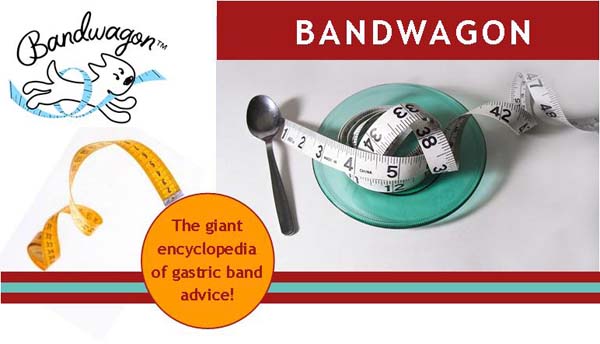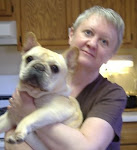It’s practice
that will make your “marriage” to your adjustable gastric band perfect, or as
perfect as any human endeavor can be. When you wake up in the recovery room
after your surgery, you won’t be magically endowed with all the knowledge,
experience, and habits you’ll need to succeed with your band. Even if you did
tons of research, faithfully attended every pre-op educational class, and
listened closely to and made detailed notes of everything your bariatric team
told you, some things – important things – you’ll have to learn through the
everyday experience of living and eating with your band.
When you leave
the hospital or surgery center after your surgery, you probably won’t be headed
for your honeymoon quite yet. That will come later, when you’ve had enough
fills to achieve optimal restriction and you begin to feel that your band is
really working. The excess weight will start coming off and you’ll walk around
in a dreamy pink haze, delighted with your new life partner. You might even
give your band a silly private pet name, the way my husband calls me “Love Bug”
(which always makes me think of my first car, a chubby yellow Volkswagen
Beetle).
Then one day, the
reality of banded life will wake you up. You’ll think, “Who is this creature
I’ve married?” And like Jenny, a former coworker of mine, you’ll realize that
while the engagement, wedding and honeymoon were exciting and fun, the
day-after-day business of marriage isn’t exciting or fun 24 hours a day. It’s
hard work. It’s boring. It’s frustrating. It’s humdrum. Jenny left her new
husband after only three months of marriage not because she didn’t love him,
but because she didn’t love being married to him. Being a wife isn’t nearly as
fun as being a bride.
I suspect that
Jenny just wasn’t old enough or mature enough to be a wife. Neither was I when
I married the first time. One of the reasons most bariatric surgeons and
insurance companies require a patient to have a pre-op psychological consult is
to evaluate the patient’s understanding of what they’ll have to do to succeed
after surgery. Are they ready for a lifetime commitment? Do they have
reasonable expectations? Can they follow instructions? Are they capable of
learning the new behaviors they’ll need for a productive, peaceful partnership
with their band?
HABIT FORMING
New bandsters
need dozens of new habits – something like 60-70% of my book Bandwagon is devoted to explaining those
habits, so I’m not going to try to cram them all into a blog entry (anyway, I’d
rather you buy and read the book!). I’ll pick one at random. Hmmm…how about EAT
SLOWLY? How are you going to turn that behavior into a habit that will serve
you well for the rest of your life?
So Dr.
McMillan tells you, “Eat slowly,” and you nod your assent while thinking, “Get
real! I’m too busy to do anything slowly. I have 3 kids and 2 dogs, I work 2
jobs, I take care of my elderly Aunt Bertha, I coach my daughter’s softball
team, I have a house to run and a spouse who’s always on the road…” Well, you
get the idea. Dr. McMillan has just told you to do something that’s very simple
and yet impossibly difficult, you think Dr. McMillan needs to wake up and smell
the coffee, and a door in your mind slams shut.
Actually, Dr.
McMillan is already awake, has had a cup of coffee, has tended to all 11 of her
dogs and all 3 of her cats, is about to leave for the fitness studio, and when
she returns she will deal with a home renovation project while running her
home-based publishing business off the kitchen table; tomorrow the fun will
start all over again, including a 5-1/2 hour shift at her retail job and a trip
to the supermarket. She’ll do the laundry, pick another batch off ticks off the
new dog, cook several meals, and get someone to come look at the leaking French
doors. Dr. McMillan’s friend Nina calls her the “Tennessee Tsunami”, and
despite all that, Dr. M. still manages to eat slowly every time she sits down
to a meal. As a pre-op, it took her maybe 5 minutes to hoover her way through a
meal that would feed a farmhand, and now it can take her up to 5 minutes to
chew her way through the first bite.
The EAT SLOWLY
habit (or any other habit) doesn’t become a habit overnight. It takes many,
many repetitions to turn a new behavior into a habit (a British study found
that it takes anywhere from 18 to 254 days of daily repetition to make a new
behavior “automatic”). I know it’s a big
challenge, especially when you’re also trying to learn a few dozen other new
behaviors and turn all of them into habits while somehow conquering the dozens
of bad habits you already had, but I assure you, it’s worth the effort!






